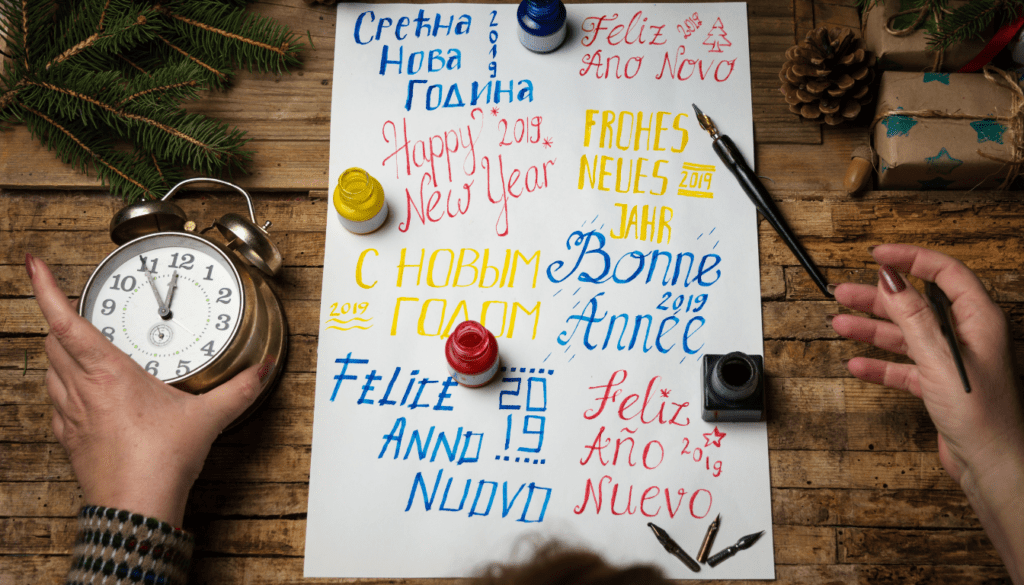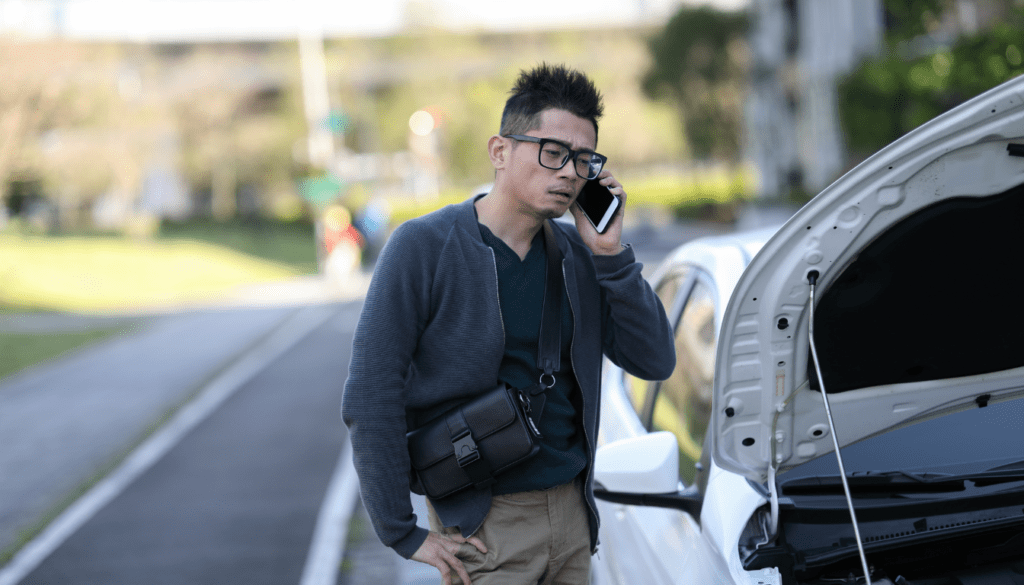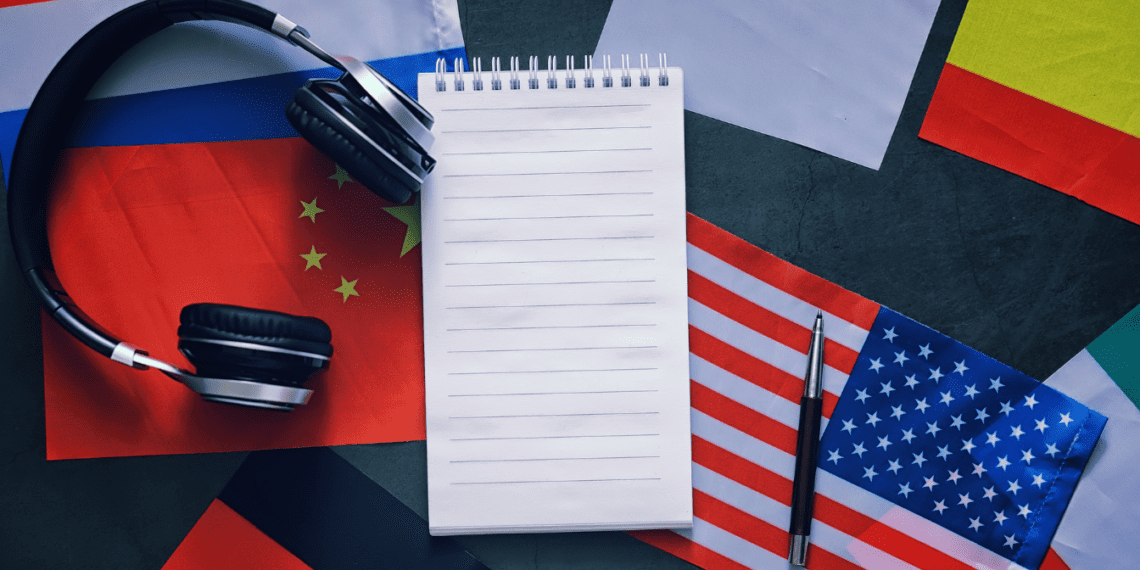Going to a new country is exciting. But, talking with people there can be hard. Yet, learning a bit of their language can change everything. It can make your trip better and help you understand their culture more. So, let’s look at how learning a few words can make your next trip amazing.
Key Takeaways
- Mastering basic language skills can greatly enhance your travel experience
- Learning common travel phrases helps you communicate effectively with locals
- Immersing yourself in the target language can lead to more meaningful interactions
- Pocket-sized phrasebooks and language apps make it easy to learn on the go
- Embracing mistakes and showing respect for the local language is key to building connections
Introduction to Language Basics for Travel
Going to another country is thrilling, but it has challenges. The main challenge is often the language. Learning some local words can really improve your trip. It helps with daily tasks and makes meeting people easier.
Why Learning Basic Phrases is Important
Understanding the local language a bit can help greatly. It lets you ask for things, connect with people, and join in on the culture. Just a few polite words can change your whole experience for the better. It shows you respect the locals and leaves a good impression.
Benefits of Knowing Local Language Basics
- You’ll find it easier to do everyday things like getting directions or ordering food.
- It helps you really get into the local culture and connect with people.
- This makes you feel more confident and less worried in new places.
- You can also stay safer and be clearer in emergencies.
- Your travel experience will be more enjoyable and memorable.
English is spoken in many places, but knowing a bit of the local language is still very helpful. It makes you more able to move around and understand the culture. Learning the language opens new doors and helps create better travel memories.

“Knowing the language basics can take you from being a tourist to becoming a traveler who can truly experience and appreciate a new culture.”
Transit Phrases for Getting Around
Getting through airports, taxis, buses, and more can be tough without the right words. It’s vital to learn key transit phrases. They help you navigate your way with confidence when you’re away from home.
Airport and Transportation Vocabulary
Knowing basic transport phrases is key to a hassle-free journey. Here are some useful phrases you should learn:
- “Where is the bus/train station?”
- “How much does this cost?”
- “Can you please repeat that?”
- “What time does the next [bus/train] leave?”
- “Can you tell me how to get to [destination]?”
Asking for Directions and Locations
After arriving, asking for directions is crucial. Use these phrases to find your way:
- “Where is the [place]?”
- “How far is it?”
- “Can you show me on a map?”
- “Is it close by?”
- “Which direction should I go?”
Learning such phrases will greatly improve your travels. They make it much simpler to get around and explore new places with ease.

“64.5% of travelers find that knowing transit-related phrases significantly enhances their travel experience.”
Health and Wellness Language Essentials
When you travel to another country, it’s key to talk about your health and any issues you might have. Knowing phrases like “I’m not feeling well” or “I need to see a doctor” is vital. You should also learn how to say “I’m allergic to [ingredient].” This will help you deal with health problems away from home.
It’s not just about medical issues, though. To make your trip smoother, you should be able to ask for personal care items. This includes things like toiletries or feminine products. These skills will help you handle new healthcare systems and stay well while seeing the world.
Key Health and Wellness Phrases for Travelers
- I don’t feel well.
- I have a headache/stomachache/fever.
- I need to see a doctor/dentist.
- I’m allergic to [ingredient/food/medication].
- I need to fill a prescription.
- I need to purchase [personal care item].
- Where can I find a pharmacy/hospital/clinic?
Preparing a Travel Health Kit
Packing a great travel health kit is also a must. Make sure it has antibacterial hand wipes, bandages, and pain relievers. Don’t forget any medications you need. These items can help with small health problems and make you feel ready for your trip.

Always focus on staying healthy and safe when you travel. By learning the right health and wellness language and having the best supplies, you can manage any health issues while away. This preparation ensures you’re ready for whatever comes your way on your journey.
Accommodation Phrases for Hotels and Homestays
Traveling and choosing where to stay can be daunting. Knowing key phrases helps a lot. Whether it’s a hotel room or a homestay, clear communication ensures a great stay.
Requesting Room Amenities and Services
First, learn about what hotels and homestays offer. Say “I’d like to request a [item]” or “Can you please provide a [item] in my room?” for things like more pillows, a hairdryer, or a fridge. Also, ask about services you might need, like room service or shuttle rides.
| Accommodation Amenity | Percentage of Hotels Offering |
|---|---|
| Wi-Fi | 79% |
| Shuttle Service | 45% |
| Room Service | 68% |
| Valet Parking | 33% |
| Spa Facilities | 22% |
| Complimentary Breakfast | 61% |
| Business Center | 18% |
| Laundry Service | 56% |
| Bellman Service | 73% |
| Minibar | 40% |
Dealing with Accommodation Issues
If something goes wrong during your stay, clear communication is key. Use phrases like “There seems to be a problem with [issue]” or “Could you please assist me with [problem]?” This will get you the help you need.
Good communication is vital for a smooth stay. Once you know the right words, you can enjoy your trip without worries.

Dining Out: Restaurant Language Basics
Ordering food and drinks can be hard in a foreign country. But, knowing a few restaurant phrases can make things go smoothly. It’s important to understand how to order dishes you like and express any food needs you have. Learning the basics makes dining out fun for anyone.
Ordering Food and Drinks
Ordering at a restaurant becomes easier with the right words. Learn phrases like “I’d like the [dish name]” or “May I have the [drink name]?” This lets you clearly say what you want to the waiter. You should also learn how to ask questions about the menu, the food portions, and how to make changes to a dish.
Fact: The average gathering for a restaurant meal is about 4 people. If you need more time to decide, waiters usually come back in 5 minutes. Knowing this can help you relax and enjoy your meal better.
Dietary Restrictions and Allergies
Telling the restaurant about your food needs is very important. Use phrases such as “I’m [vegetarian/vegan/gluten-free], what can I eat?” or “I’m allergic to [ingredient], please avoid it in my food.” Communicating your food needs well can make sure you stay safe and happy during your meal.
Don’t forget about tipping and service charges. In many places, a 10% to 20% service charge is added to your bill. In North America and parts of Eastern Europe, tipping 15% to 20% for good service is expected. Knowing these details helps you follow local customs when dining out.
| Restaurant Type | Key Characteristics |
|---|---|
| Food Truck | A mobile restaurant that operates out of a truck or van, serving various types of street food. |
| Fine Dining | An upscale establishment offering high-quality cuisine, impeccable service, and an elegant atmosphere. |
| Fast Food | An eatery where you can quickly grab affordable, pre-prepared meals, often with a self-service model. |
| Pub | A traditional British-style bar that also serves food, offering a selection of drinks and pub grub. |
Learning the right words for dining helps you order confidently and explain your food needs. It lets you dive into the local eating scene. A bit of language prep can make your dining adventures abroad unforgettable.

Language Basics for Travel Abroad
Exploring the world is great, and knowing a few key words can help a lot. It’s useful for airports, taxis, and talking in restaurants. Learning some common travel phrases can lead to better talks and a richer cultural dive.
Being able to say hello and ask simple questions is important. They’re the basics for anyone wanting to enjoy their trips more. These simple language skills boost your travel confidence and help in many overseas situations.
Greetings and Polite Expressions
- Learn to say “Hello,” “Goodbye,” “Please,” and “Thank you” in the local tongue.
- Knowing “Excuse me” and “I’m sorry” is helpful for social events.
- Phrases like “How are you?” and “Nice to meet you” help you bond with locals.
Numbers and Asking Questions
- Get good at numbers 1 to 10 for ordering food or paying.
- Ask “How much does this cost?” or “Where is the nearest _____?” to get around.
- Need directions or travel info? Learn to ask.
Learning these universal travel phrases help you travel confidently. Let your adventure and new language skills for travel make unforgettable trips abroad.
“Learning a new language is like opening a new door to the world. It’s a skill that can enrich your life and connect you to diverse cultures.”

A little bit of local language can make a big difference in your travels. So, start with the essential language basics for travel to begin your linguistic journey today.
Shopping Vocabulary and Negotiation Phrases
When you travel abroad, knowing how to talk well while shopping can make your trip even better. It’s not just about buying something new. It’s also about learning how people in that place live. This is especially true at local markets or when you try to get a good price.
Haggling and Bargaining Etiquette
In lots of places, bargaining is normal and fun. Learning the local customs and ways to talk about prices can make you more confident. This helps you not get into awkward situations. Here are things to remember:
- Always start negotiating with a higher price than you actually want to pay.
- Say things nicely like, “Could you lower the price a bit?” or “Can we find a good price for both of us?”
- Look at how the seller acts to see if they are willing to change the price.
- If you can’t agree on a price, it’s okay to walk away. They might offer you a better price later.
- Don’t get too attached to something. Stay calm and be friendly while talking about the price.
Remember, bargaining is about both getting a good deal and showing respect. With practice and a positive attitude, you can be a great negotiator in no time.
| Shopping Language for Travel | Bargaining and Negotiation Phrases | Cultural Etiquette for Haggling |
|---|---|---|
| How much is this? | Can you give me a better price? | Start with a higher offer |
| I’d like to buy this | What’s your lowest price? | Use polite and respectful language |
| Do you have any discounts? | Is there any room for negotiation? | Pay attention to nonverbal cues |
| Can I see this in a different color? | Would you be willing to go lower? | Be willing to walk away |
| Where can I find [item]? | I’m happy to buy if we can agree on a price. | Maintain a calm and friendly demeanor |
By learning key shopping words, how to bargain, and local customs, you’ll enjoy shopping in a new country. You’ll find cool things to take home. And, you’ll always remember the unique parts of your visit.

Meeting New People: Conversation Starters
Exploring new places also means meeting new people. It’s great getting to know locals and making new friends. Saying simple things like “Nice to meet you” or “Where are you from?” can start good conversations.
Introducing Yourself and Making Friends
When you meet someone for the first time, just say hello and your name. Then ask about them – their job, what they do for fun. It’s a nice way to show you’re interested in them.
Smiling and looking them in the eye is important. It shows you’re friendly and listening. This makes a good first impression.
Indicating You're Learning the Language
Saying you’re learning their language is a good start. It shows you like their culture. Don’t hesitate to ask for language help. Most people will be glad to help you out.
Having these talks can lead to deeper friendships. So, be open, chat, and appreciate making connections with different cultures.
“Travel is fatal to prejudice, bigotry, and narrow-mindedness, and many of our people need it sorely on these accounts. Broad, wholesome, charitable views of men and things cannot be acquired by vegetating in one little corner of the earth all one’s lifetime.” – Mark Twain
Emergency Phrases for Travelers
Travel plans might not include emergencies. But, knowing key phrases is vital. This knowledge can help you get quick help when needed.
Asking for Help and Contacting Authorities
In an emergency abroad, quick phrases can really help. You should learn:
- “I need help.”
- “Can you call the police/ambulance?”
- “I’m having a medical emergency.”
- “Stop!”
- “Leave me alone.”
- “I need to go to the hospital.”
These phrases can make it easier to tell others about your situation. This can get you the right help faster.
Explaining Medical Emergencies
For a medical crisis, clear details are vital. You should know how to say your symptoms, allergies, or need for a doctor. This information can speed up your care.
- “I have been [injured/in an accident].”
- “I’m allergic to [specific allergen].”
- “I don’t eat [dietary restriction].”
- “I need a doctor.”
- “I need to go to the hospital.”
Learning these vital phrases will make you more ready for sudden issues. Also, keep important numbers and insurance on your phone.

“Knowing just a few key phrases in the local language can make all the difference when you’re in an emergency situation abroad.”
Learning Methods for Language Basics
Learning the basics of a new language for travel isn’t the same for everyone. Luckily, tools and resources are there to help. These include apps, online courses, language exchange platforms, and classes. Choosing the best method depends on your style and needs.
Apps and Online Resources
Today, learning a new language is convenient and fun with apps and online platforms. Apps like Duolingo, Babbel, and Memrise are popular. They help you learn vocabulary, grammar, and conversational skills in a fun way. They use games to make learning enjoyable.
Platforms like HelloTalk and Tandem let you practice with native speakers. This can improve your speaking skills quickly. For a deeper dive, watch foreign movies and TV shows with subtitles. This not only helps with language but also cultural understanding.
Taking Language Classes
If you’re more structured, consider language classes. You can find them in-person or online. They cover grammar, vocabulary, and speaking. Look at community colleges or adult centers for affordable options. Italki also connects you with tutors worldwide.
“With the latest tips, tricks, and technology, travelers can quickly learn language basics without formal classes.”
The method you choose, be it through an app, course, or class, should match your style and life. Using different tools and techniques can strengthen your language skills. This can make your travel more enjoyable and richer.

Cultural Immersion Through Language
Learning the local language can open many doors when traveling. It helps you understand a culture better. Conversing in the native tongue can enrich your travel memories.
Even simple words in the local language can make a big difference. They can break the ice and make people more open. Your efforts to speak their language will be appreciated.
Using Language to Connect with Locals
If you want to really dive into a new culture, here’s how language can help:
- Learn basic phrases like “hello,” “thank you,” and “how are you?” to show your willingness to engage
- Ask locals for recommendations on restaurants, activities, and hidden gems that only the locals know about
- Participate in language exchange programs or find a conversation partner to practice your skills and learn from a native speaker
- Attend local events, festivals, or classes to experience the culture firsthand and pick up on linguistic nuances
- Respect the local language and make an effort to pronounce words correctly, even if you’re still learning
Adopting the local language can do wonders. It strengthens your communication and your bond with a culture. This way, you make real connections on your trips.
“When you speak the local language, even just a little, you open up a whole new world of experiences and connections. It’s so rewarding to be able to chat with locals and learn from them directly.” – Chase Chisholm, teaching English in South Korea
Cultural immersion through language is about much more than the language. It is about the people and the experiences. Making an effort to speak the local language leads to a more genuine and memorable journey.
Language Tips for Specific Travel Situations
Traveling abroad is more rewarding when you know some of the local language. This is especially true for study programs, volunteer work, or adventure tours. Using the right words can really make your trip better.
Study Abroad and Volunteering Abroad
If you’re studying or volunteering somewhere, knowing the local language is key. You’ll need to understand words for talking about school, work, or helping others. Research shows that using simple local phrases helps impress people and gets you up to 85% more positive reactions.
Learning the language helps in many ways. It makes studying, working, or talking to locals easier. Studies say having an offline language app can improve talking to locals by 75% even when there’s a language barrier.
Adventure Travel and Tours
For adventure travel or tours, speaking the local tongue is also important. It helps you communicate with guides or join in activities better. Statistics show that tours with guides who speak two languages reduce misunderstandings by 80%.
Knowing a bit of the language comes in handy outdoors or in new activities. Learning a few words can help a lot, whether you’re ordering food or shopping.
| Travel Situation | Language Skill Importance | Key Benefits |
|---|---|---|
| Study Abroad | High |
|
| Volunteering Abroad | High |
|
| Adventure Travel and Tours | Moderate to High |
|
Learning the local language enhances any travel situation. It makes daily life smoother and helps you connect deeper with the culture. This way, you truly dive into the destination’s heart.
Body Language and Non-Verbal Communication
Deciphering appropriate body language is key while traveling. Cultural cues signal how to behave without speaking. Souring essential social interactions is possible even when local language remains unknown.
Body language’s global impact can’t be overstated. Europeans may smile less than North Americans. In Japan, a smile paired with a blush can indicate shyness. In China, it shows respect or discomfort. Signs of a smile in Africa convey openness and welcome.
Gestures can easily be misunderstood across different cultures. The A-OK sign, deemed positive in Europe, offends in another context. South Korea finds certain beckoning gestures impolite.
Tactile norms also greatly vary. Japan values personal space more than Latin Americans, who commonly hug. Some cultures, like North America, treasure a larger personal space bubble.
Traveling sheds light on cultural differences in non-verbal communication. Understanding these variations improves interaction. It helps to both grasp others’ feelings and express one’s own, especially in the face of language differences.
Through travel, I’ve honed the ability to interpret unspoken language. Observing body language has become instinctual. It aids in understanding diverse cultures and by-passes language barriers.
| Cultural Differences in Body Language and Non-Verbal Communication |
|---|
|
Recognizing and adjusting to these non-verbal cues is vital for travelers. It strengthens connections with diverse communities. Navigating language differences successfully hinges on this skill.
“Travel greatly enhances the ability to read people and situations based on body language and facial expressions.”
Making the Most of Your Language Skills
As you travel, use the language you’ve learned, even if not perfectly. Mistakes are normal and show you’re trying. They help you grow and connect with others.
Being confident and open to using your skills is important. It helps you talk with people better and enjoy your trip more.
Overcoming Fears and Embracing Mistakes
Learning a new language can seem tough. But, making mistakes is okay. It’s part of getting better. Don’t worry about messing up. Treat it as a learning chance and a way to meet new people.
- Try to practice your language every day, even if just a little. This makes you more confident.
- Find meetups or clubs to practice in a friendly place. Speaking with locals helps you get better.
- Think about volunteering or studying in a foreign country. It’s a great way to dive into the language and culture.
Don’t give up. Keep trying. With time and a good attitude, you’ll feel more sure of yourself. You’ll also get to know the local culture better.
“Confidence and a willingness to try are key to making the most of your language abilities while traveling.”
Try to embrace learning a new language. It helps you talk better and understand new cultures. So, be brave. Make mistakes. Your language skills will make your trip unforgettable.
Conclusion
Thinking back on what we’ve learned, it’s clear how knowing a bit of the local language can make a big difference. It helps with things like getting around, talking to people, and learning about the culture. This makes your travel experience richer in every way.
Are you ready to take on Paris’s lively streets, explore hidden wonders of rural Japan, or just have a great time abroad? This guide has given you the tools. You can now open up to new experiences and connect with people and cultures unlike your own.
Remember, the heart of travel is not just about what you see or hear but also the friends you make. So, jump in, use those important words, and see how learning a new language changes your adventures. The world is out there, waiting for you to explore, and knowing a bit of the language can lead to endless possibilities.
FAQ
Why is it important to learn basic phrases when traveling to a country where English is not the primary language?
Learning a few essential language basics can really make your trip better. Knowing greetings and basic words helps you talk about what you need. It makes it easier to meet locals and understand daily things.
What are the benefits of knowing local language basics when traveling?
It helps in many ways. You can ask for directions, order food, and handle emergencies better. Knowing some local language makes you feel more a part of the culture. You can connect with people and learn about their traditions.
What are some key phrases to know for getting around when traveling?
It’s hard to get around if you don’t know how to talk about it. Learn phrases like asking where the station is. Also, knowing how to ask the price of something can save you a lot of worry. Asking someone to say it again can clear up confusion quickly.
How can language skills help with health and wellness while traveling?
It’s important to talk about your health needs when not feeling well. Knowing phrases for seeing a doctor can get you help faster. Talking about any allergies is vital for your safety.
What language skills are important when dealing with accommodations?
Being able to tell what you need in your room can make a huge difference in your stay. Phrases like “I need help” or “Can you help me with this?” are very useful. They ensure your room is how you want and that your stay is good.
What language skills are essential for dining out while traveling?
Ordering food can be hard in another language. Learning basic phrases for ordering and asking about special food can solve this. Phrases like “I want this” and “Do you have this type of food?” are very handy.
What are some basic language skills and phrases that are universally useful for travelers?
Knowing how to greet people, use polite words, and ask common questions is a big help. Basic language skills are key in many travel situations. They make things smoother and help you feel more confident.
How can language skills be helpful when shopping for souvenirs or local goods?
Being able to ask about prices and other shopping needs can make your trip more fun. Phrases like “How much?” and “I want to buy this” will get you what you want. Asking for a lower price can even save you money.
What are some ways to use language skills to connect with locals during your travels?
Even basic conversation skills can help you meet new people when you travel. Simple phrases like “Nice to meet you” and “Where are you from?” show you want to get to know them. This can lead to friendships and a richer travel experience.
How can language skills be useful in emergency situations while traveling?
Rare as they are, emergencies do happen and it’s best to be prepared. Phrases like “I need help” and “Call the police” are important. Knowing these helps get you the help you need.
What are some tools and resources available to help learn essential language basics for travel?
Many tools can help you learn the basics of a language for travel. You can use apps, online courses, or find a language partner or tutor. Finding what method works best for you is important for learning effectively.
How can using the local language contribute to cultural immersion and understanding?
Speaking the local language can help you really get to know a place. It shows locals you respect their culture. This can lead to deeper connections and a better understanding of their way of life.
How can language skills be particularly important for specific types of travel, such as study abroad or adventure travel?
If you’re studying or volunteering abroad, learning the local language is key. It helps in your daily interactions, whether at school or work. For adventurous trips, it’s crucial for safety and fully joining in the fun.
How can understanding body language and non-verbal communication be helpful when traveling?
Non-verbal communication is a big part of how we talk to each other. Understanding local customs and gestures can help you communicate better. It’s a great skill for when language is a barrier.
What advice would you give for making the most of your language skills while traveling?
Be brave and use the language skills you have, even if you’re not perfect. Making an effort shows respect and can lead to cultural insights. Remember, trying and being confident is what counts most.




























